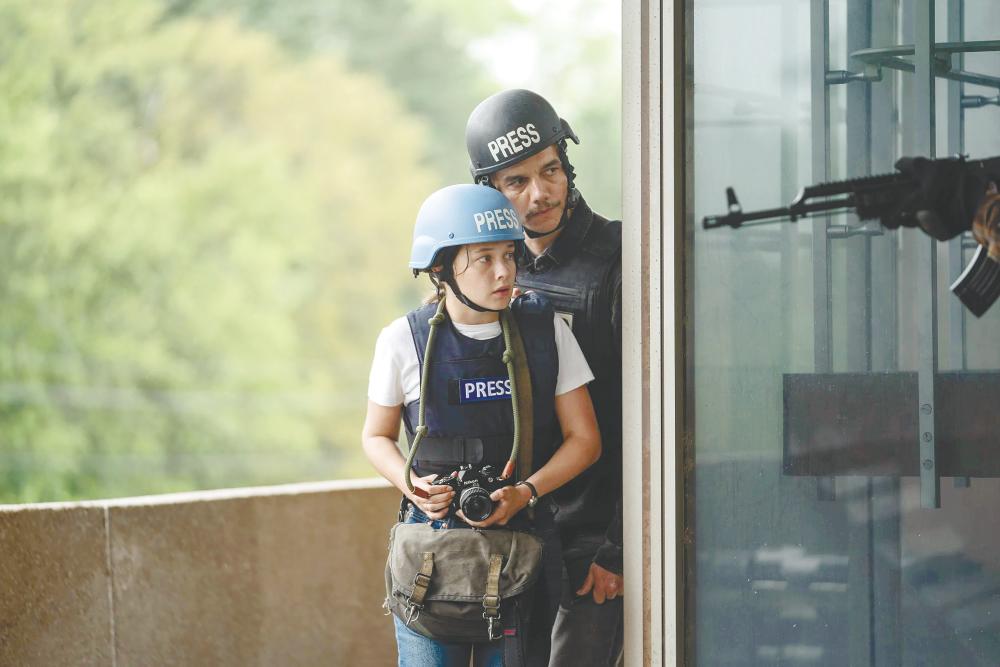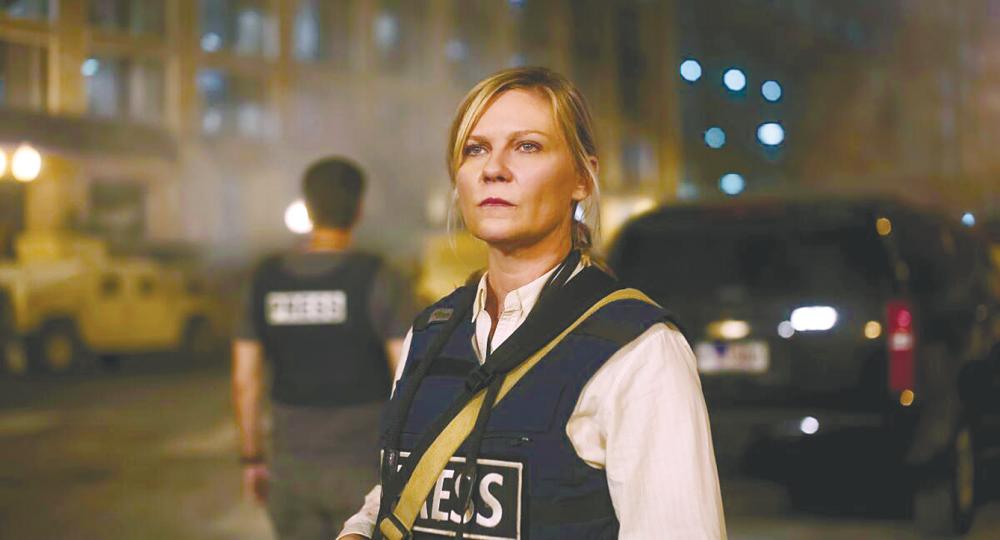SET in a not-too-distant dystopian future, a divided United States (US) is embroiled in a civil war. Led by secessionist states Texas and California, the Western Forces (WF) campaign to oust the US President marches on from the west towards Washington. However, the President (Nick Offerman) appears on a televised national address from the White House and assures Americans the civil war between the US and the WF is nearly at an end.
In the east side of New York City, veteran war photojournalist Lee Smith (Kirsten Dunst), journalists Joel (Wagner Moura) and Sammy (Stephen McKinley Henderson) and aspiring photographer Jessie (Cailee Spaeny) begin their journey to the White House, hoping to interview the president before the war ends.
Creatively bankrupt mis-adventure
Unlike the marketing campaign that sold it as an action war film, Civil War is more in line with a faux war documentary, displaying images of desensitised war correspondence and photojournalists rushing towards whatever is newsworthy with reckless abandon, all to capture the money shot under a rush of adrenaline. Therein lies the crux of the problem.
At least real world documentaries tell a cohesive story but Civil War is a film that is as creatively bankrupt as the vapid and hollow presentation of its politics, which is so purposely vague that writer-director Alex Garland leaves nothing for audiences to interpret.
There is a scene in the film, in which Smith attempts to negotiate with heavily-armed gas station workers. After she offers one of them US$300 (RM1,036) for fuel, he smirks and declines but when Smith reiterates that she means Canadian currency, his eyes light up.
The storytelling here is subtle as the exchange reveals the US dollar has severely weakened against the Canadian dollar due to the civil war without the characters spelling it out. This is the only smart storytelling moment in the entirety of Civil War.

Empty spectacle and discourse
Civil War purports in its promos to deliver a hard-hitting commentary on the State of the Union, using Offerman’s US President character as a stand-in for his real world counterparts while the film would also tell a deeply personal story of a fictional US, in which its politics has torn the country apart as the worst nightmares and fantasies of Americans have come to pass.
These simply do not take place as Garland seems to have lost the courage seen in his earlier films such as Ex Machina as he refuses to make a stand in Civil War. The story is not shaped to deliver his stance on whether the things occurring in the film are good or bad and his characters do not do it either.
The main characters, despite being journalists, never talk about the state the US is currently in, what led to the WF states seceding, the US President’s actions, the current geopolitical relations between the US and foreign countries or anything that is narratively meaty due to how shallow the writing is.
At the very least, the actors are entertaining. Dunst is excellent at bringing a fraught and aged element to her PTSD-riddled Smith while Moura offsets the latter with a layer of fun through his adrenaline-junkie character.
Spaeny rounds out the lead trio performance and she is definitely a star in the making. Even Jesse Plemons plays his uncredited role as an ultra nationalist maniac excellently as the main characters stumble into him and are held at gunpoint.
Despite all the praises sung for the actors, their performances are not enough to mitigate the mediocre script.
Like the blood streaming out of gunshot wounds inflicted on despotic leaders, Garland’s centrist point of view has only harmed Civil War by draining the potential out of its skeletal premise inspired by the real-life US.
Civil War is available on video-on-demand platforms.









